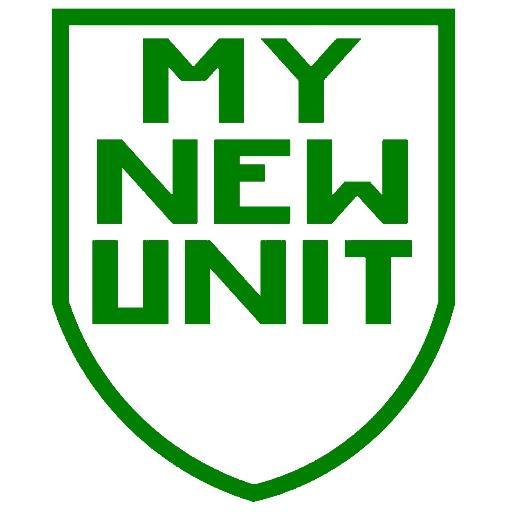Post by humortruthwin on Sept 3, 2019 8:55:36 GMT -8
Been studying comedy writing for a mere couple years.
Sure I've been able to come up with the occasional dad joke like most people, but testing further waters has taught me much more than I would've thought.
Namely, I learned the concept of "subtext." Never heard of it before. Then when I learned its basic idea, I still didn't fully understand it.
Been writing comedy professionally/for money--okay, for essentially pennies--not as my main gig but on the side for less than 2 years.
That said, I'd estimate that mastering subtext is a slow, lifelong disciplined process; no arrival.
I've learned that to improve at writing, be it comedy or other, one must write DAILY. Every day.
Jerry Seinfeld did some 5 years on a standup comedy grind with little (what we call) "success" while doing drywall demo type jobs and such for money.
He heard early on from pros that daily writing is essential. Whether in the mood or not.
Jerry had a calendar. He made it a goal to write, at some point, every day and planned to mark a big "X" over each day that he had written.
If I recall correctly, every day of every year had an "X" through it. None missed. Last I knew, Seinfeld still has this habit.
Sounds like borderline OCD, some lazy comedians might have surmised. I've heard many times over that the comedians (standup or other) who write tend to succeed and will keep succeeding as long as they write daily.
IF not, I'm told that comedians of lesser success swear that they're not lazy and that they simply didn't "get the lucky break." Plus there's some "haters gonna hate" issues they now live by.
Later in Seinfeld's life, he and Larry David wrote every single episode of the sitcom "Seinfeld" with pen and yellow legal pads. No computers by choice.
So, to improve at anything, I need not beat the drum of extolling discipline on this podcast hub, of all places.
But in my journey, the discipline of writing has been the X-factor for growth or stagnation.
Maybe just as crucial to my daily output has been reading other people's jokes, perhaps conversely seen as "receiving input."
Though it's basically a competition with winners and losers and all the feelings of rejection and discouragement that tend to go with that whole thing, my ego wants to scoff when I lose.
I learned more when humble and blocking that internal ego voice.
Turns out, the latter attitude helped me gain a friend, Charlie, who is now what I consider to be a mentor of sorts, even though it's just banter on Messenger. No money exchanged; nothing formal. Lot of reciprocal generosity.
By the way, I can't believe how effective it is to be an encouragement and take rib shots digs in stride! Especially on the internet. It's like relationship steroids.
As the newest and least experienced comedy writer when I started, my eager-to-learn mindset and work habit kept me through discouraging times.
Discouragement, I found out the hard way, in the insta-feedback comedy writing world online, should hit the comedy writer at least 3 times a day.
It's easy to quit when it's a free hobby.
Anyway, my friend Charlie has more comedy writing experience than anyone else I know, perhaps more years than a Jerry Seinfeld all told.
After 40+ years, Charlie breathes mastery of subtext. It's like he can't help it. It's like a jiujitsu black belt plus black belt equivalents of other disciplines.
Ego wouldn't have opened all these doors.
For someone with a non-comedy writing background, it helps to have a twisted view of things and an innate rebellion from the status quo to swing to that side. A dash of word power comes in handy.
I don't write for a living. Never have. For me, that fact had pros and cons for entering the comedy writing arena.
Subtext is less pivotal in the prose and perhaps in most other non-comedy writing pieces because comedy is largely based on surprised and smashed expectations.
Subtext is super pivotal in life. Learning how to use subtext in comedy writing has helped me in life. I'm kind of naturally blunt. No subtext.
That comes across like I don't care about people feelings. How effective do you think that's been for me in my life? Yup.
So, like at work, instead of "Stop smacking your lips when you eat," I could say "(Would someone please give me a polite idea on how to say this to my camel-chew coworker?)." Thanks.
Subtext is basically flanking. It's cleverly masking a message inside of a neat package of words. If I wanted to make a joke that says "bureaucracy is dumb," the reader or listener would pretty much need a bit of effort have to look for it.
Wouldn't want to veil it too much, though, unless I'm only addressing the relatively esoteric crowd.
I love hearing about Jocko's relational flanking exploits. That's real-world stuff that isn't just applicable for BTF's and Jarheads.
It's cool to hear how he'd stealth-mode play the game up and down the chain of command for a long-term betterment of not just himself but for the big team and hence the big purpose.
Pardon my pun, but a well executed flank leads to a side-splitting joke.
I've applied "subtextual" speech patterns in my marriage. If any place needs subtext aka flanking, it's in marriages!
Warning: If the motive is selfish, flanking works...but in the long run it doesn't.
It's highly recommended to lay down one's ego for the other person's benefit even if they step on you.
If he or she isn't a terrorist or a generally ill-willed person, eventually that meek (not weak!) servant leadership will influence them to respond in kind. Might take years. It's worth it.



